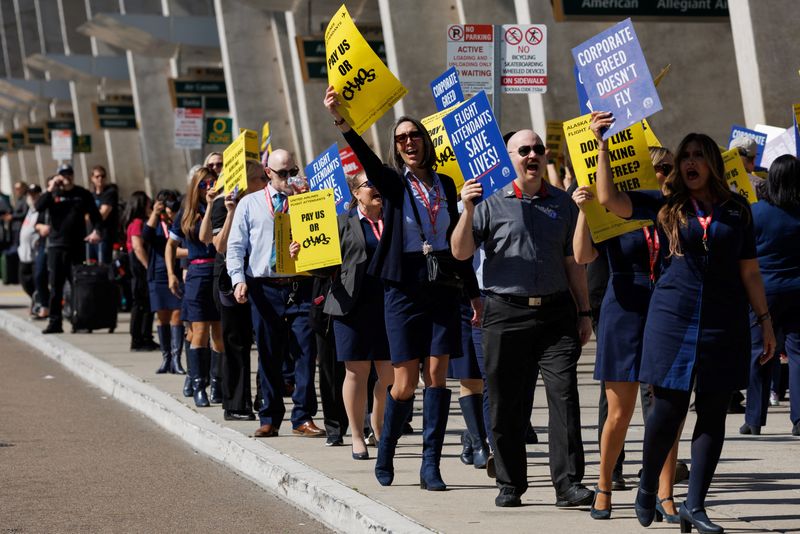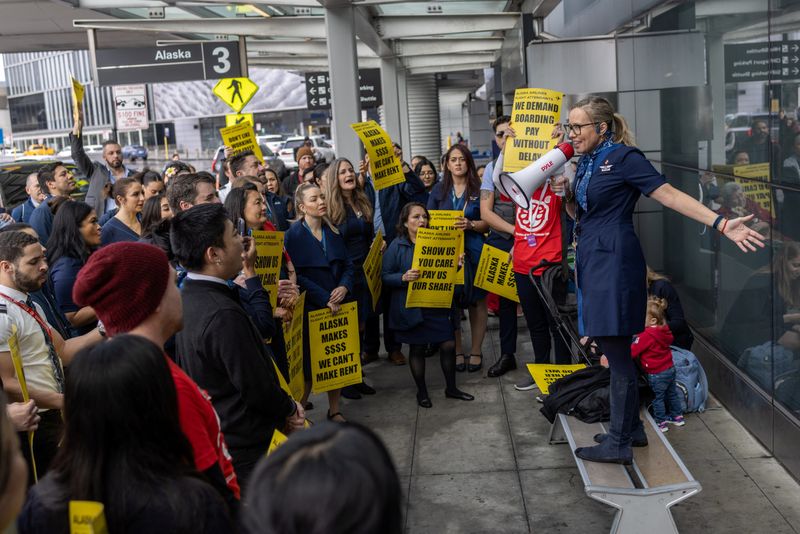(Reuters) - Alaska Air (NYSE:ALK) flight attendants authorized a strike mandate for the first time in three decades, as thousands of cabin crew across three unions picketed for higher pay outside airports in the United States, the UK and Guam on Tuesday.
Picketing members included cabin crew from 24 airlines including Alaska, Southwest Airlines (NYSE:LUV), United Airlines and American Airlines (NASDAQ:AAL).
Shares of Alaska Air fell 2.1% in afternoon trade. Southwest was down 0.9%, United Airlines tumbled 3.9% and American Airlines shed 2.2%.
Out of 93.47% participating Alaska Air flight attendants - represented by the Association of Flight Attendants-CWA (AFA-CWA) - 99.48% voted in favor of a strike, the airline said.
U.S. flight attendants are unlikely to walk off the job because of a complex labor process that makes it difficult for airline workers to strike. But the first Alaska mandate since 1993 reflects labor's broader demands for higher pay at a time when a majority of U.S. cabin crew are in contract talks, the Association of Flight Attendants said.
While pilots across major airlines have secured new labor deals including bumper pay hikes and other benefits, some flight attendants have not had a pay raise in five years, the AFA said.
Flight attendants from Southwest Airlines and Air Transat in Canada, which are both pressing for steep pay raises, are in negotiations after rejecting earlier deals.

According to a Feb. 9 union memo to Transat flight attendants seen by Reuters, an adviser assigned by the union is "no longer at the bargaining table," after members rejected two earlier agreements.
The Canadian Union of Public Employees (CUPE), which represents Transat flight attendants, said the change was related to internal union management, and would not impact the continuity of the negotiations.
